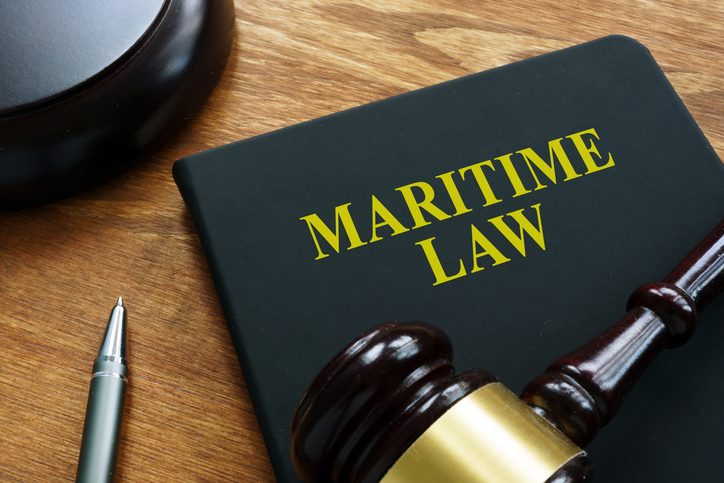A recent court ruling underscored the essential requirements for claiming salvage rewards, highlighting the rights of service providers in maritime distress situations.
On the 27th of March 2025, the First Hall of the Civil Court, presided over by Madame Justice Joanne Vella Cuschieri, delivered a judgement in the case of Sandy Yacht Marina Limited of Sea Breeze, G. Cali Street, Ta’ Xbiex, Malta vs. the vessel M/Y Leymor, registered in Malta with Official No. 17186.
The Court ruled in favour of the claimant company in a dispute concerning unpaid maritime salvage services, and in doing so, also outlined the essential requisites for a successful claim for the payment of salvage services under Maltese maritime law.
This case concerned an incident wherein the defendant vessel was at imminent risk of sinking and was offered assistance by the claimant company. The core issue before the Court was whether the assistance provided constituted salvage services within the meaning and scope of the applicable legal provisions, more specifically Chapter 234 of the Laws of Malta, the Merchant Shipping Act. Accordingly, the Court was called upon to assess whether the elements necessary to establish a valid claim for salvage had been satisfied in the circumstances.
The Court started off by making reference to Black’s Law Dictionary which defined a salvage service as follows: “The aid or rescue given, either voluntarily or by contract, to a vessel in need of assistance because of present or apprehended danger. Although salvage may involve towing, it is distinguished from towing service, which is rendered merely to expedite a voyage, not to respond to dangerous circumstances”.
Additionally, it also referred to the International Salvage Convention of 1989 which emphasises that a salvage operation encompasses any act or activity undertaken to assist a vessel or any other property in danger, whether in navigable waters or any other waters whatsoever.
The Court then proceeded to examine Articles 343 and 344 of the Maltese Merchant Shipping Act. It has been confirmed that if any vessel, whether Maltese or foreign, becomes wrecked, stranded, or is in distress at any location on or near the coasts within the Maltese Territorial Jurisdiction, and services are provided by any individual to assist such vessel or save any part thereof, the person providing such services shall be entitled to a reasonable salvage reward which is to be paid by the owner of the vessel.
Moreover, the law explicitly states that no salvage is due to persons having a specific relationship with the vessel in question, whereby it is their duty to render such assistance, nor to persons who provide assistance despite the express and reasonable prohibition from the vessel. Consequently, it was also incumbent upon the Court to determine whether the services provided by the claimant constituted salvage services, as required by law, for a reward to be justified.
Through local case-law, the Court identified four essential requisites that must be satisfied for salvage services to warrant a reward:
- The service must be rendered to a legally recognised subject of salvage, that is to say, to vessels, their apparel, cargo and merchandise, bunkers, wreck, and so called freight at risk;
In this case, it was confirmed that the catamaran belonged to Barra Scuba Limited, thereby undoubtedly satisfying the first requisite.
- The service must be voluntary;
Moreover, the diver employed by the claimant company testified that he was the individual who initially provided salvage services to the vessel in distress. The Court affirmed that, as an employee of the claimant company, the diver acted voluntarily, as he was under no legal obligation to assist or render services to the vessel in question.
- The subject of the salvage must be in danger;
Testimonies indicated that the vessel was already taking on water, which posed a risk of it sinking completely, or at the very least, causing severe damage to the machinery. This highlighted the necessity of the claimant’s intervention to prevent such damage or total loss of the vessel, hence, the third criterion was also satisfied.
- The service must be successful.
The Court was satisfied that the salvage services provided by the claimant company were instrumental in the rescue of the defendant vessel. It held that the arrival of the vessel’s crew to offer assistance shortly thereafter did not diminish the fact that the claimant had, in fact, provided the necessary assistance for the rescue operation to be deemed successful.
Therefore, with the final element satisfied, the Court concluded that all the necessary requirements for a successful salvage action were present.
Furthermore, as for the amount claimed by the claimant, the Court examined the calculation of the sum which was determined in accordance with the law, based on the value of the defendant vessel as reflected in the price at which it was being offered for sale. It was observed that this valuation was not contested by the defendant company.
Consequently, the Court concurred with the claimant and ruled that the defendant vessel owed a sum of €11,800. The defendant company, now the debtor, was subsequently ordered to pay this amount, along with all applicable additional expenses and taxes as from the date of judgement.
For more information you can contact one of our Team Members at Mifsud & Mifsud Advocates.













